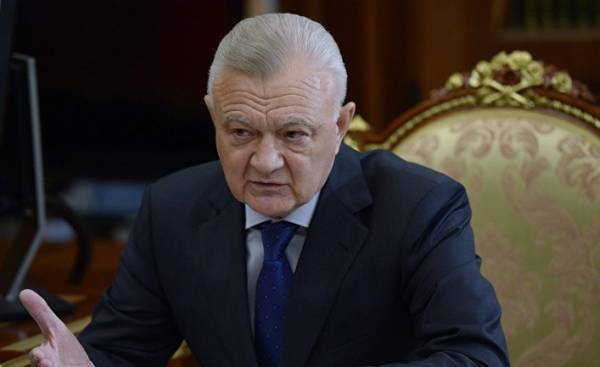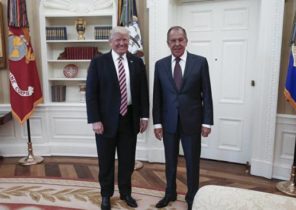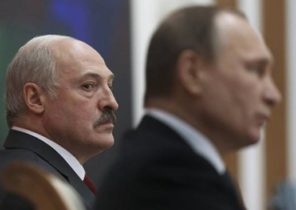
The Governor of Ryazan region Oleg Kovalev prematurely leaving his post, reported on Tuesday, February 14, Russian media. Thus, in Russia for the fourth consecutive week replaced the head of the region.
Before he was dismissed by the head of the Novgorod region Sergey Mitin. Prior to that, in accordance with the decrees of President Vladimir Putin ahead of schedule stopped powers of the governors of the Buryatia Republic and the Saratov region.
According to experts, this “cleansing” does not stop there. So, Director of the Center for the development of regional policy Ilya Graschenkov a year ago predicted that by the end of 2017 in the country can be replaced up to 50% of incumbent heads of constituent entities.
What caused such a large-scale personnel changes? The head of the program “Russian domestic politics and political institutions,” Carnegie Moscow center Andrei Kolesnikov believes that the Kremlin is pursuing these diverse goals.
“It is a change of regional elite, the search for more effective models of public administration, a message to all the elites that people who may feel perfectly safe, (in Russia) does not exist, and attempt to show the population that the government is more willing to be updated, he added in an interview with “Voice of America”. — And in these cases all mixed up”.
As it seems the scientist is also the first pre-election steps of the Kremlin administration in the framework of the presidential race. We will remind, presidential elections scheduled for 2018, that does not preclude the early implementation.
“All newly appointed governors and to those that have yet to be assigned, to work after 2018, — said the expert. — That is, the change of command in the broadest sense of the word, and not only of Putin’s inner circle, where, too, is changing. People come younger, from the Federal layers of bureaucracy, a relatively young technocrats.”
Obviously, this is the idea of Putin about managerial effectiveness ahead of the elections, suggested Andrei Kolesnikov.
“It is connected with the hope that new personnel will allow him to retain power or to reduce the risk to lose her, but at the same time to improve the quality of governance after 2018, he stated. — All occurs in this logic, in my opinion. Younger and less corrupt in the eyes of Putin they will have to provide some level of manageability of the country in a rather difficult period after 2018”.
In addition, the expert of the Moscow Carnegie center think that personnel changes will continue. In his opinion, it is quite obvious.
“Of course, to keep such a large country (under control) without rigid technocratic managers is impossible, not to mention the fact that, of course, and the Federal elite, too, need to slowly upgrade, he continued. — So replacements are either of technocrats-bureaucrats, on the one hand, and on the other on people from the power unit, with the army-spetssluzhbisty the past.”
According to media reports, a number of regions (Tula, Yaroslavl, Kaliningrad and Kirov region) in the last year was led by the nominees of the FSB and FSO.
Thus, according to Andrey Kolesnikov, there is no evidence that this is a really effective way and that such disciplinary method can be used to improve the situation in the regions and in the country as a whole, but that is the trend, and it is quite noticeable.
From the point of view of the Director of the regional program of Independent Institute for social policy (IISP) Natalia Zubarevich in the country there is a change of unpopular governors who have no serious support among the population, and they can’t provide proper control in the region.
“This is the first thing she said in the comments, “Voice of America”. — The second direction — strong rejuvenation of the governors”.
Natalia Zubarevich agree to any personnel changes associated with the upcoming presidential elections.
“Therefore, the change of leaders occurs in those regions where there were problems associated with low ratings of governors and the fact that they are not completely controlled elite, made some conflict. In short, the choice of the regions due to internal political reasons,” she concluded.
As far as the regional programme Director of NISP, in different circles, including in the expert community, believe that it is possible to replace approximately “10-12”.






